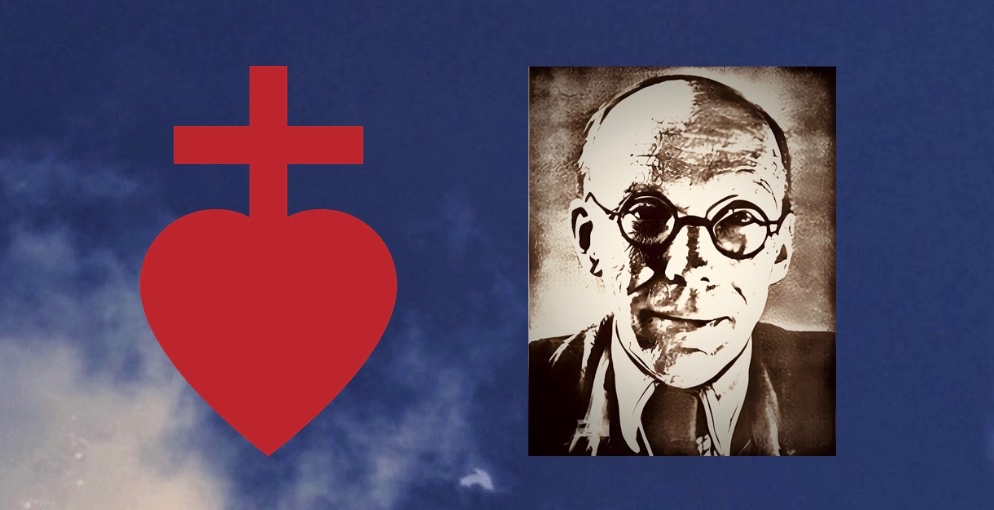
2023 Update:
Here is the first of a never-completed nine part series of musings on Valentin Tomberg, Catholicism, Rudolf Steiner and the world tragedy, written many years ago in 2011. In recently re-visiting it, for the first time in years, I have seen fit to rewrite it a little. But for the most part it remains as it was, even if today it seems to me very slightly crude and immature in places.
My more mature thinking on Tomberg is found in my books, key articles like this one and the YouTube videos you will see peppered through the series. Still I think there may be valuable material in this series not found elsewhere and For navigation purposes, we list and link the nine parts here:
- Valentin Tomberg, Catholicism and the Counter-Revolution—Pt. 1
- Valentin Tomberg, Catholicism and the Counter-Revolution—Pt. 2
- Valentin Tomberg, Catholicism and the Counter-Revolution—Pt. 3
- Valentin Tomberg, Catholicism and the Counter-Revolution—Pt. 4
- Valentin Tomberg, Catholicism and the Counter-Revolution—Pt. 5
- Valentin Tomberg, Catholicism and the Counter-Revolution—Pt. 6
- Valentin Tomberg, Catholicism and the Counter-Revolution—Pt. 7
- Valentin Tomberg, Catholicism and the Counter-Revolution—Pt. 8
- Valentin Tomberg, Catholicism and the Counter-Revolution—Pt. 9
And now back to 2011 — Roger Buck
In the last entry, I quoted Valentin Tomberg as to the following:
The French Revolution was but a stepping stone – a stepping stone that demonstrated with alarming clarity the great trend of revolutions which began with humanism in the Fourteenth Century, then resulted via the Reformation in the Enlightenment of the Eighteenth Century, which in turn, took “fleshly” form in the revolution of 1789.
From there it advanced via 1830 and 1848 to the international community of 1871 [when the Third French Republic arose, among other things – RB] – and to the Russian revolutions in 1905, February 1917 and October 1917.
Today I continue the quote with that which follows:
The beginning of the revolutionary development is harmless humanism, the swooning over laical [i.e. from the French laicité and meaning roughly secular – RB] culture; and it ends with Black and Red Bolshevism – as the final result of the destruction of the great temple of piety, in which and from which the soul of the occident draws its life-force.
The joy of thinking and researching without God in laical humanism led to the first push in the direction towards further “emancipations”, i.e. the severing of the bonds of reverence: reverence for the Church´s tradition, including her saints and sages; reverence for the tradition of chivalry, including its reverence for women and the sancity of word and honour, finally reverence for the human being itself, with its right to life, liberty and property.
One started thinking without God and one ended up with life without God, the push to liberate oneself from one bond (research liberated from religion) led ultimately to the liberation from all bonds.
Thus was created a human without reverence, the psychological Bolshevik … [Tomberg’s emphasis in bold, mine in italics]
Valentin Tomberg, Foundations of International Law (Edition from Grail Guide Publications), p. 74.
Now, Tomberg appears very concerned indeed by the human being without reverence, without piety …
In the hermetic writings, he is – among other things – calling us back to this reverence. He is honouring Catholic Tradition, the Sacraments, the Rosary and so much more that was lost or destroyed in the wake of the Protestant Reformation. He is calling us back to the life-source of the West before the revolutions …

But in itself, this calling back to Catholic piety is not so very controversial.
What is controversial is much that can be found in Tomberg’s legal-political works. At least, they are highly controversial to the modern mind.
Yet it is perhaps in his legal-political writings most of all, that one can feel the urgency Tomberg felt in not letting the world be drowned in a de-Christianised materialism.
In these works, Tomberg praises political figures of the Nineteenth Century, who were willing to go so far as to use military force to preserve Christianity. These are figures that we moderns tend to write-off as nothing but arch-conservative reactionaries or power-crazed fools.
Valentin Tomberg clearly felt differently.
One such figure was Prince Clemens Metternich of Austria, who pioneered the Holy Alliance after Napoleon had destroyed Europe.
Now Tomberg writes to clarify the aim of:
Metternich, who was villified so much [but] who recognised the true scope of the danger which it was the duty of the alliance to prevent …
The [Holy] Alliance owed … to Metternich the knowledge of its necessity: to save European Christianity from the danger of being swept under a wave of irreverence.
Valentin Tomberg, Foundations of International Law (Edition from Grail Guide Publications), p. .
The italics dear Reader are my own. May I confess that I was bowled over by what Tomberg was endorsing in this passage: Both the necessity and also the duty of a (military) Holy Alliance to preserve us from further degeneration …
And he clearly regrets the final failure of the Holy Alliance (after the revolutions in 1848, which again, in his view led to further degeneration).
For Tomberg, the Holy Alliance was a failed step in the right direction …
The same theme will continue in the Hermetic works with an admittedly brief defense of the Crusades, as well as a lengthier advocacy of at least the essential structures of Christendom. (A further glimpse of what I mean by the latter can be found here).
But we are racing ahead of ourselves somewhat. In these opening parts of this long series, I do not wish to go into depth about Tomberg’s proposed solutions to world degeneration, whether these be hermetic, political or—even most shocking to modern ears—military (e.g. Tomberg supports the Alliance sending troops into Spain to crush revolution and restore the monarchy).
This is not my aim for the moment. My point is really to do with how very seriously Tomberg took world degeneration.
For dear Lector, it would seem that the wave that Valentin Tomberg was so very concerned with, it would seem that this wave has now become TIDAL, engulfing us all …
We will keep looking then at the theme of degeneration and the urgency Valentin Tomberg felt concerning it.
Prince Clemens Metternich
However for now, I will just say a little more of Metternich. Who was he?
Well, as Gary Potter tells us:
Prince Clemens Metternich (1773-1859) was very much a man of power [my emphasis again], and his Christian conscience could not have been better formed. Chancellor of the Austrian Empire for most of the first half of the nineteenth century, together with Napoleon and the Prussian Otto von Bismarck, he was one of the three statesmen who most dominated European political life during those hundred years.
Unfortunately, the other two were bent on destroying all that remained of Catholic influence on that life. Metternich alone was dedicated to preserving it. Thus did his name become synonymous with anti-liberalism.
No theologian, he looked to the long history, the tradition, of Christian government that existed before the Revolution as the source of political and social wisdom. As he would write in a dispatch (in French, the only language in which he wrote) to an Austrian ambassador to the Holy See:
“I am, Mr. Ambassador, a man of the Church, a strict Catholic, and it is because of that I feel myself to be at the same time a statesman who is practical. The truth is one and the Church is its premier repository. Between religious and social truths, there is scarcely a difference, because society cannot live except according to the Faith and religious morality.
And who, you may ask Lector, is Gary Potter?
Well, among other things, he is the author of a piece, which has just been published at this site. The above was taken from that piece and is called The Great Nineteenth.
Potter means the century of Catholic resistance to the revolutions of the epoch. And his fascinating piece can give anyone who is interested in Tomberg’s project some very valuable background.
This is to say, it can tell us not only about “Prince Clemens Metternich (1773-1859) … man of power” but much else besides that Tomberg was drawing from.
However as I emphasise in my foreword to that piece, our publishing it here does not mean endorsement of everything that Potter says.
However we do feel that this article can do much to open the modern reader to things that Valentin Tomberg was deeply concerned about – even if ultimately Tomberg came to solutions, which while they parallel Potter on many significant points, also differ from them.
I will also refer the interested reader to Charles A. Coulombe’s Puritan’s Empire, which also goes into the Holy Alliance. There are indeed very striking parallels between Valentin Tomberg’s politics and Coulombe’s. Differences exist yes, but I have been deeply sobered and struck by the parallels.
Foreword for Monarchy by Roger Buck


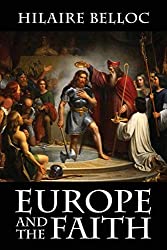

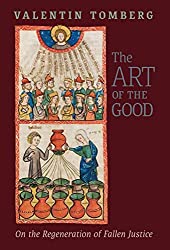


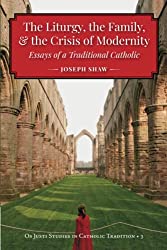
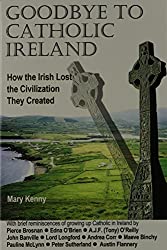




Comments
comments are currently closed
4 responses to “Valentin Tomberg, Catholicism and the Counter-Revolution—Pt. 8”
I think why the Church is so often attacked as it is biggest center of resistance to Liberalism, which is clear in its proclamation in the upper levels but more often than not there is little follow through on the Diocesan or Parish level. The result is there are few Catholics in the trenches…having been swallowed the by the forces of degeneration and liberalism themselves. Sometimes I think it will take a war, which is always first and foremost ideological, to combat the degeneration we see around us.
Edwin, thank you!
Re:
“I think why the Church is so often attacked as it is biggest center of resistance to Liberalism, which is clear in its proclamation in the upper levels but more often than not there is little follow through on the Diocesan or Parish level. The result is there are few Catholics in the trenches…having been swallowed the by the forces of degeneration and liberalism themselves.”
Indeed yes! Though I include under this heading economic liberalism, i.e. unfettered corporate libertarianism, which many American Catholics might not …
The current Church at the parish and diocesan level is no longer counter-cultural. It joins the vast worldly liberal materialistic consumerist pattern.
Prior to Vatican II, the Catholic Church was a centre of resistance to secular materialism.
Now the Holy Father is trying to reclaim the Catholic Church as a site of resistance.
And the world’s liberal elites, media and many bishops and priests do not like it!
And yes while I appreciate you cautioning me against despair in your last valued comment, I do think the possibility of disaster or war may in the end be the only remedy.
Valentin Tomberg speaks about such too in his legal works. That sometimes such is the only way the justice of God can be effected.
But such disaster and war means something so unimaginably harrowing – at least to relatively comfortable first world people like myself! – that I think we need to feel in our hearts what such tragedy means and do all in our power to pray and work that this is not the outcome …
Again thank you warmly Edwin for this and all your comments here.
Finally it is clear to me that many more “unknown friends” are reading these Tomberg entries, unless they are “unknown enemies” of course … I say with a rueful smile.
The Russian visits are interesting indeed …
I would love to hear from you anyone of you, whether critical or appreciative.
You might find this article interesting – Conservative Bishops, Liberal Results. It is found at one of the Ignatius Press websites.
http://www.ignatiusinsight.com/features2005/jhitchcock_bishops95_may05a.asp
Billy THANK YOU!
I am not sure “interesting” is the best adjective.
I think I might choose “heart breaking”.
But still yes it does more than interest me – it is very relevant to this website and I encourage any others reading our exchange to follow your link.
Consciousness must be raised about these things!